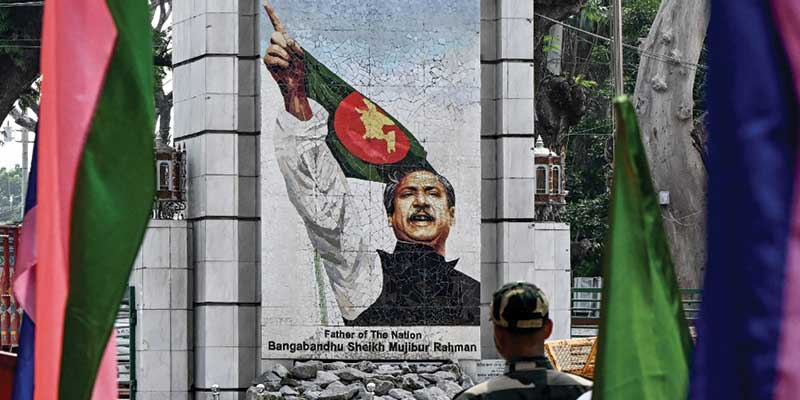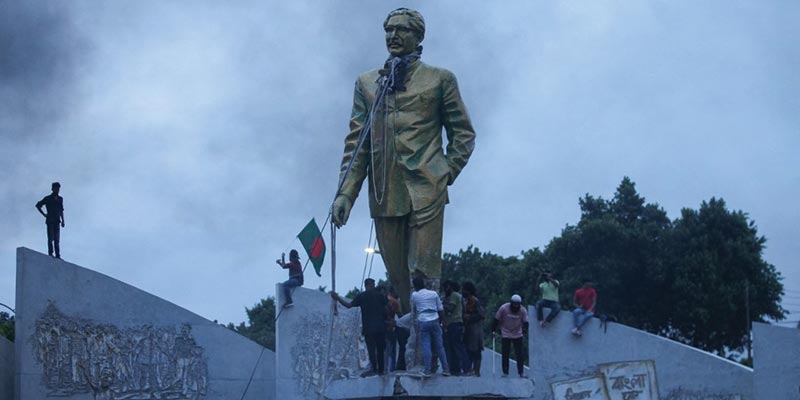- World
- Aug 07
- Kevin Savio Antony
The legacy of Sheikh Mujibur Rahman
• As many as 50 years after the massacre of Sheikh Mujibur Rahman and his family in a military coup, his legacy faces renewed turmoil.
• Recently, protesters have toppled the regime of his daughter, Sheikh Hasina, leading to a significant crisis.
• In a dramatic echo of the 2003 Firdous Square incident — where the statue of Saddam Hussein was pulled down after the US invasion — angry mobs have targeted Rahman’s golden statue. They climbed it and toppled it, symbolising their rejection of his legacy.
• This chaos reflects a deep-seated dissatisfaction with his legacy and the current political situation.
Early life and political rise
• Born on March 17, 1920, in Tungipara, India (now Bangladesh), Sheikh Mujibur Rahman, was the founding leader of Bangladesh and its first Prime Minister.
• He led the Awami League, a political party founded in 1949, and played a crucial role in the struggle for East Pakistan's autonomy.
Path to country’s independence
• Rahman became prominent for his opposition to the discrimination of Bengalis in Pakistan.
• His six-point autonomy plan aimed to secure substantial political, economic, and defence autonomy for East Pakistan within a Pakistani federation.
• Despite winning the 1970 elections, the Awami League was denied power by the military junta, leading to widespread civil disobedience and his declaration of Bangladesh’s independence on March 7, 1971.
• During the Bangladesh Liberation War, Rahman was imprisoned by the Pakistan Army. The Mukti Bahini, aided by Indian Forces, eventually defeated the Pakistani military.
Post-independence challenges
• As Bangladesh’s first Prime Minister, Rahman faced significant challenges including unemployment, poverty, and corruption, as well as the 1974 famine.
• His government was criticised for human rights violations and denial of constitutional recognition to indigenous minorities.
• In January 1975, Rahman amended the Constitution to grant himself an absolutist presidency and made Bangladesh a one-party state.
• His rule ended tragically when he and most of his family were assassinated in a military coup on August 15, 1975.
Legacy and impact
• Rahman is celebrated as the “Father of the Nation” (Jatir Janak) in Bangladesh.
• His vision and leadership were instrumental in the country’s creation and its early development.
• His legacy remains influential, with shared cultural and intellectual connections between India and Bangladesh enriching their relationship.
• Rahman’s ideals continue to inspire and shape the nation’s identity and heritage.
(The author is a trainer for Civil Services aspirants.)


